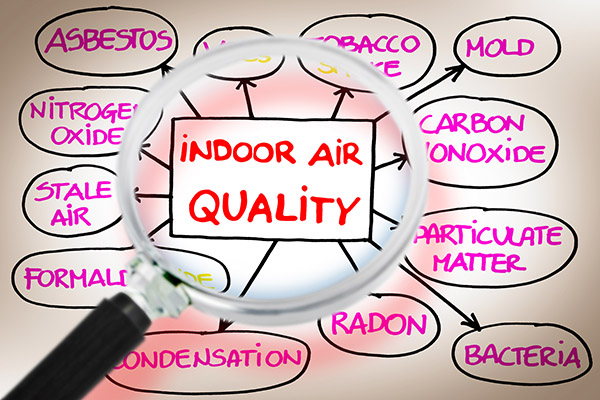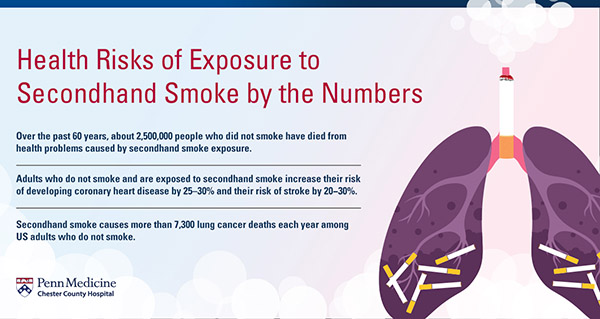
Imagine you're taking a walk downtown on a sunny spring day. Suddenly, you notice a faint smell in the air — the unpleasant scent of cigarette smoke. Even if you're not the one smoking, you're still breathing in secondhand smoke.
Secondhand smoke happens when others who are burning tobacco products --like cigarettes, cigars, hookahs or pipes --directly affect people who aren't smoking. It might seem harmless since you aren't the one smoking, but this smoke is full of thousands of chemicals and exposure to it can lead to diseases and even premature death over time.
This means that even if you've never smoked a day in your life, you could still be at risk of serious health problems if you're regularly exposed to secondhand smoke. So, what are the risks of secondhand smoke, and how can you protect yourself and others from its harmful effects?

Understanding the Risks: How Exposure to Secondhand Smoke Can Affect Your Health
"When someone smokes a cigarette, they're not just inhaling nicotine and tar — they're also releasing a toxic cloud of chemicals into the air," says Michael Costello, MD, Medical Director, Abramson Cancer Center, Chester County Hospital. "These chemicals include things like formaldehyde, arsenic, and hydrogen cyanide, which are known to cause cancer in humans. Each year, secondhand smoke causes more than 7,000 cancer deaths among US adults."
Additionally, adults who do not smoke and are exposed to secondhand smoke increase their risk of developing lung cancer by 20–30%, according to the CDC. Secondhand smoke has also been linked to an increased risk of heart disease and stroke and it even increases the risk of sudden infant death syndrome (SIDS) in babies who are exposed to it.
Protecting Yourself: Tips to Help Minimize Your Exposure to Secondhand Smoke
Knowing the seriousness of secondhand smoke and the risks exposure to it can present to you and your health gives you incentive to take steps to protect yourself from it. Here are a few simple but effective ways to do so:
- Avoid Exposure: Try to stay away from places where people are smoking. This might mean choosing smoke-free restaurants and bars or asking friends and family members not to smoke around you.
- Speak Up: Don't be afraid to politely ask someone to put out their cigarette or move to a designated smoking area if they're smoking near you. Most people will be understanding and happy to accommodate your request.
- Create Smoke-Free Zones: If you live with someone who smokes, try to create smoke-free areas in your home where smoking isn't allowed. This can help reduce your exposure to secondhand smoke and protect your health.
- Support Smoke-Free Policies: Encourage your school, community, and local businesses to adopt smoke-free policies that protect everyone from the dangers of secondhand smoke. By working together, you can create healthier environments for everyone.
- Prioritize Cancer Screenings: As a part of your yearly check-ups with your healthcare provider, consider participating in early-detection cancer screenings, especially if you know that you are being exposed to tobacco smoke. Studies have shown that participating in a Low-Dose CT (LDCT) Lung Screening can lower the risk of death from lung cancer by 20% in people who are at high risk and has proven to be effective in detecting lung cancer early, when it's most treatable.
As you prioritize living a healthy lifestyle, you may be intentional about not participating in certain vices like smoking tobacco, but it's just as important to ensure you're limiting your exposure to others who may smoke around you. Take charge of your health and avoid secondhand smoke as much as you can.
Additional Information:
Find out more about secondhand smoke exposure by consulting your Chester County Hospital Primary Care Provider to learn about risk factors and best practices to minimize them.